“Why is my dog peeing on my bed?” Dog parents often get puzzled if they are faced with this problem. Especially when they have, not a puppy, but an adult dog that all of a sudden started doing so. Before leaping straight to scolding the pet, it’s worth investigating the cause of these issues and finding an effective solution.
There are quite a few reasons why a dog may pee on the owner’s bed. One important thing to keep in mind is that a dog never, ever does so “out of spite.”
Why does your dog pee on your bed?
If your dog starts peeing on your bed, you will almost certainly find yourself thinking: what should I do about this? The first step here is obviously going to the vet, especially if it is an adult dog. Uncontrolled urination or defecation are common symptoms of the following diseases:
- cystitis,
- urolithiasis,
- incontinence,
- improper functioning of the intestines,
- colitis, or
- overeating or improper diet.
The most common cause is incontinence. A dog can pee in their sleep or immediately after waking up, if they do not have time to move elsewhere. It might look like either a dog waking up in their urine, or urine pouring out of them when they get up. In this case, go to the vet immediately. During their treatment, you can protect your furniture by putting a diaper on your dog and covering your couch or bed with special sheets for bedridden people. These sheets are easy to wash and have a waterproof layer to prevent urine from passing through.
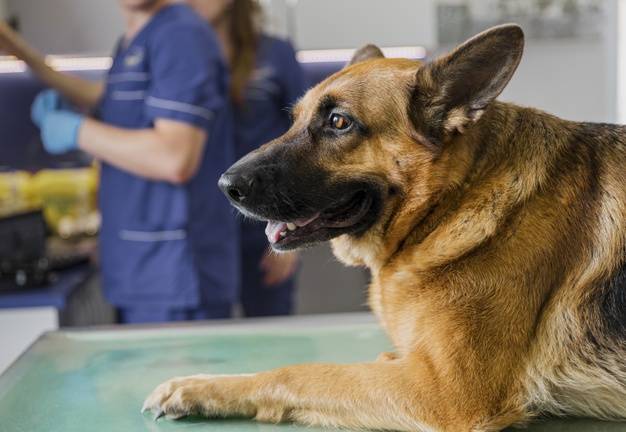
If a dog not only pees but also poops on a bed, this is likely because they, as a puppy, were taught to poop on a pad, and they think that any soft cloth is their toilet.
In this case, you should change your dog’s schedule so that walks are at the exact time your dog wants to poop. Then you should follow the recommendations on how to stop your dog from peeing in your bed.
Your task will be to teach your dog to defecate outside, not on pee pads. Otherwise, it will be quite difficult to explain to your dog why they can pee or poop on one soft cloth (the pee pad) and not on another one (the cover of your bed). Try to walk your dog at least 3 hours a day.
If you adopted a large dog from a shelter and they pooped on your bed within the first few days of being at your home, it is very likely that your dog is not used to the fact that the toilet is outside. In this case, you’ll have to potty train your furry friend.
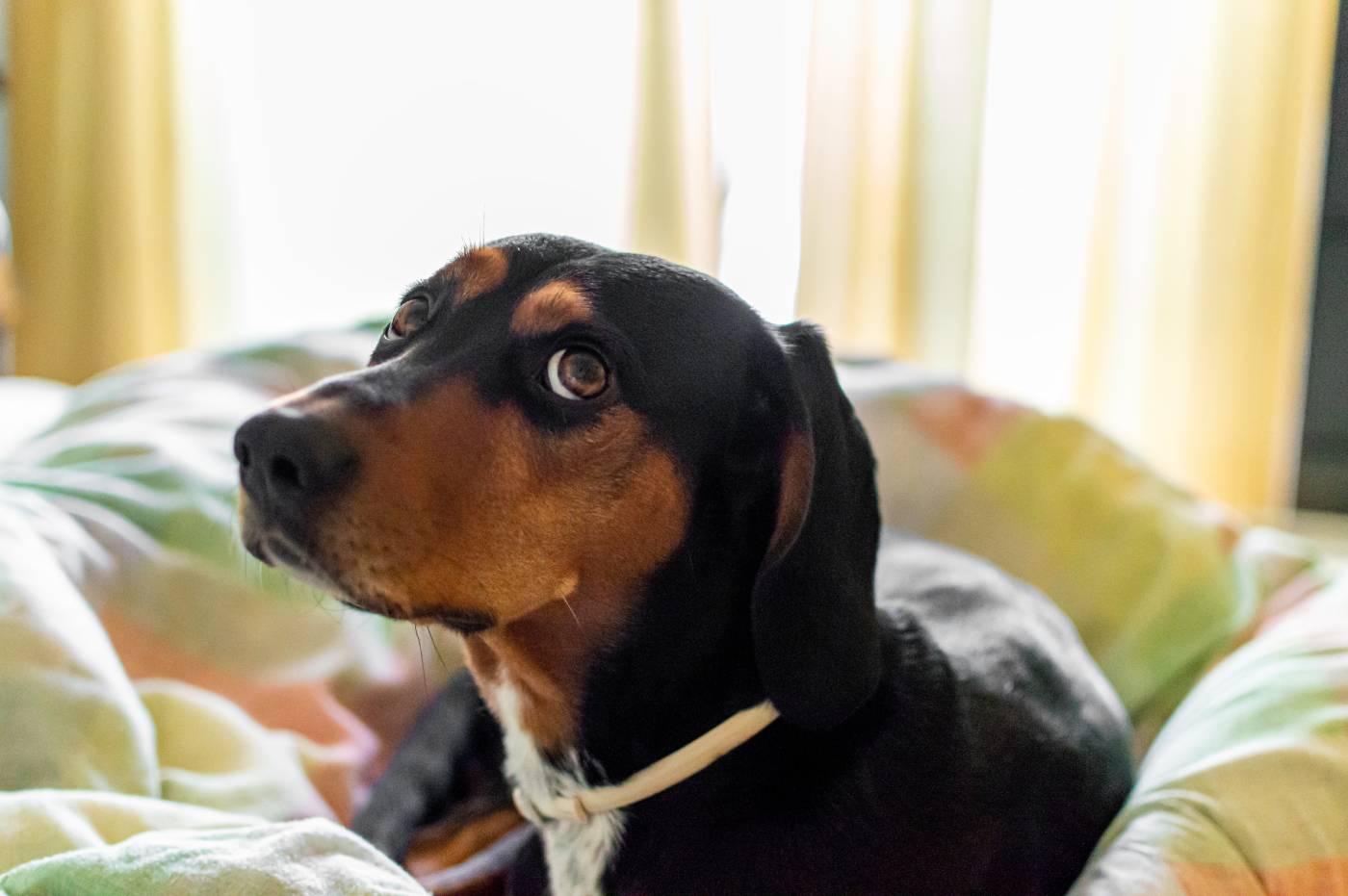
It’s also possible for a dog to start having accidents in their sleep without an identifiable reason. This problem is similar to enuresis in kids. Dogs suffering from enuresis, just like children, are nervous and excitable. As a rule these dogs are thin, as they gain weight poorly, and often suffer from diseases of the gastrointestinal tract (gastritis, colitis). If your dog has this problem, you might notice that they don’t sleep well, shivering from time to time.
This problem is very likely to fade away as soon as your pet adapts to your home. Consult with the vet about mild sedatives that you can give your dog for several months. Try to walk your dog as much as you can and regularly train them in order to make their life more predictable. Don’t spread your nerves to your dog: put diapers on them at night so that if they do pee in their sleep, it doesn’t matter.
Ask yourself a question: does your dog actually pee? Quite often, people confuse urine with other liquids. Dogs sometimes lick their paws for a long time, often including the blanket in their bathing routine as well. Some dogs suck fabrics; this is a manifestation of stereotypic movement disorder (SMD). If you notice signs of SMD in your dog, you should consult a dog behavior specialist.
The next reasons why a dog pees on the bed are a lack of potty training, or a manifestation of marking behavior
Again, it’s very necessary to establish a regular feeding and walking routine.
If a dog comes to your house for the first time, do not let them off the leash for the first ten minutes. Walk around the apartment with them, letting them sniff everything. If they try to scent mark anything, pull on the leash to prevent the dog from doing so. After ten minutes, you can let the dog off the leash, and they are very likely not to mark anything again.
If it’s been a while since you’ve brought a dog into your house, and this dog pees on your couch from time to time, for a few weeks do the following: walk your dog properly and, after returning home, allow your dog to lay on your bed or on the couch for the first hour or two immediately afterwards.
If you decide not to let your dog into the bedroom and on the bed in the future, then make sure to play “exploring the house” with them.
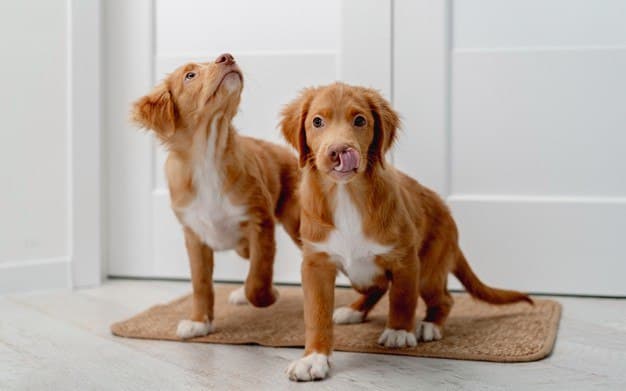
Let your dog take a look around and sniff all objects, including your bed. In a few days, let your dog stay in your bedroom, but this time don’t play with them and don’t reinforce them (unlike all other rooms, where their communication with you should be interesting and diverse). Your bedroom should become an uninteresting room for them.
Soon your dog will stop rushing there, because there is nothing attractive for them anymore. After a couple of weeks, you will close the door to that room, and the dog will not try to open it in your absence to explore and mark unexplored territory.
When you take your dog to the sofa immediately after a walk, let them interact and play with you for the first two hours after walking. Then, lure your dog down to the floor by giving the “Down” command (if your dog has already learned it). Don’t let your dog jump on your bed or couch until the next walk: distract them or command them to get down every time they try to climb on the sofa.
You can also put your dog on a leash and walk across the house with them. When you take your dog outside, praise them and reward them for doing their business outside. Then, at home, let them stay on the couch for the first hour or two after a walk.
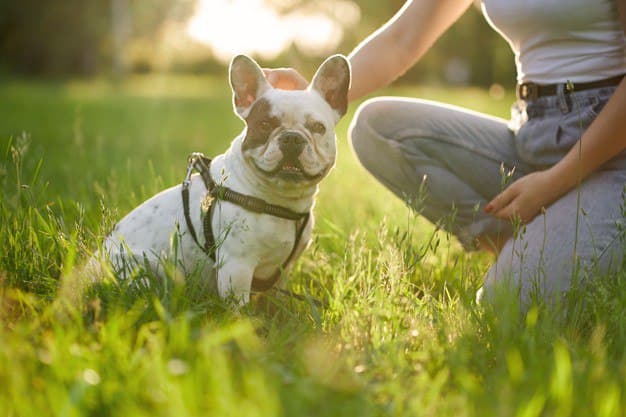
Thus, within two or three weeks, your pet will establish a new habit without turning the sofa into a “forbidden fruit” and without allowing your four-legged friend to make new bad habits.
Remove excessive odors at the very beginning of your work on your dog’s behavior.
Dogs like to mark couches and sofas because the fabrics store the individual smells of everyone who sits, lies, or walks on them: not only people, but also cats, dogs, and even things like rats and rabbits as well. They all leave smells that a dog’s nose is able to sniff out even after several washes.
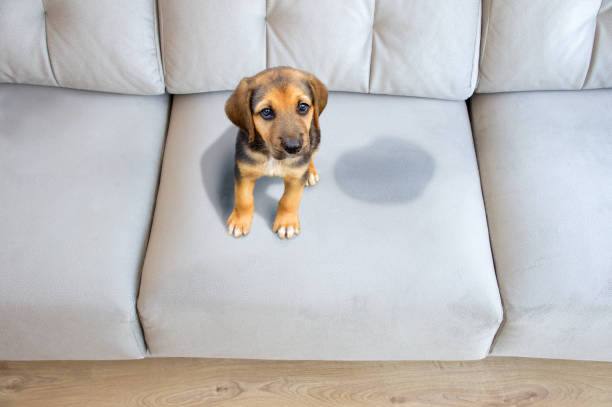
Some carpets may be easier to throw out than to wash, so that every dog that gets into your house doesn’t try to mark it. Even if you wash it, the smells can still be detected only by the dog’s exceptionally sharp sense of smell.
All odor eliminators are effective only to a certain extent, so don’t rely on them completely. However, sometimes the results are really impressive—a dog stops marking after the first cleaning with such a spray.
So, let’s get to work! All your efforts will soon be rewarded: you will be able to forget about this annoying issue forever and never worry about your sofas and beds again.
If your dog pees on a bed only if they sneak into a room that they usually are not allowed in, or if they walk around the bed, sniff, and then pee, then it’s likely your dog is scent marking a new territory.
This behavior usually fades away when the territory is no longer new to the dog. For example, if you have one dog and you bring a new one into your house, it’s quite likely that the new dog will inspect the house and mark all surfaces on which your first dog usually lies. So, your task is to remove excessive odors and help your newbie get used to the unfamiliar territory.
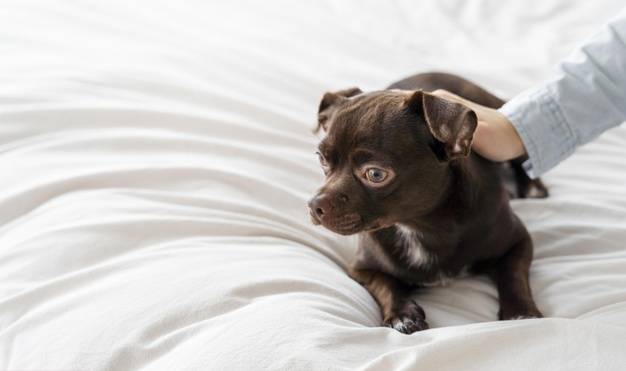
The next reason why a dog pees on the bed is stress
It can be caused by separation anxiety (which you can read about in this article) or a number of other reasons.
A house is quite a predictable place for a dog, so when something irregular or unexpected breaks this routine, the dog can get stressed out. For example, moving to another house, the birth of a new family member, rearrangement of furniture, or conflicts within the family can significantly increase stress levels to the point that the dog can’t cope with it and can’t control themselves.
Some people say that peeing is the dog’s way of revenge: “I shouted at my dog and they peed on my bed for that.” Such complicated schemes aren’t the way dogs’ brains work. Dogs don’t take revenge and every behavior has a reason. In this case, the dog was too stressed out, especially if they were punished. They went to a safe place where it’s cosy and smells familiarly of their beloved human, and they simply couldn’t restrain themselves, because the physiological processes had already started.
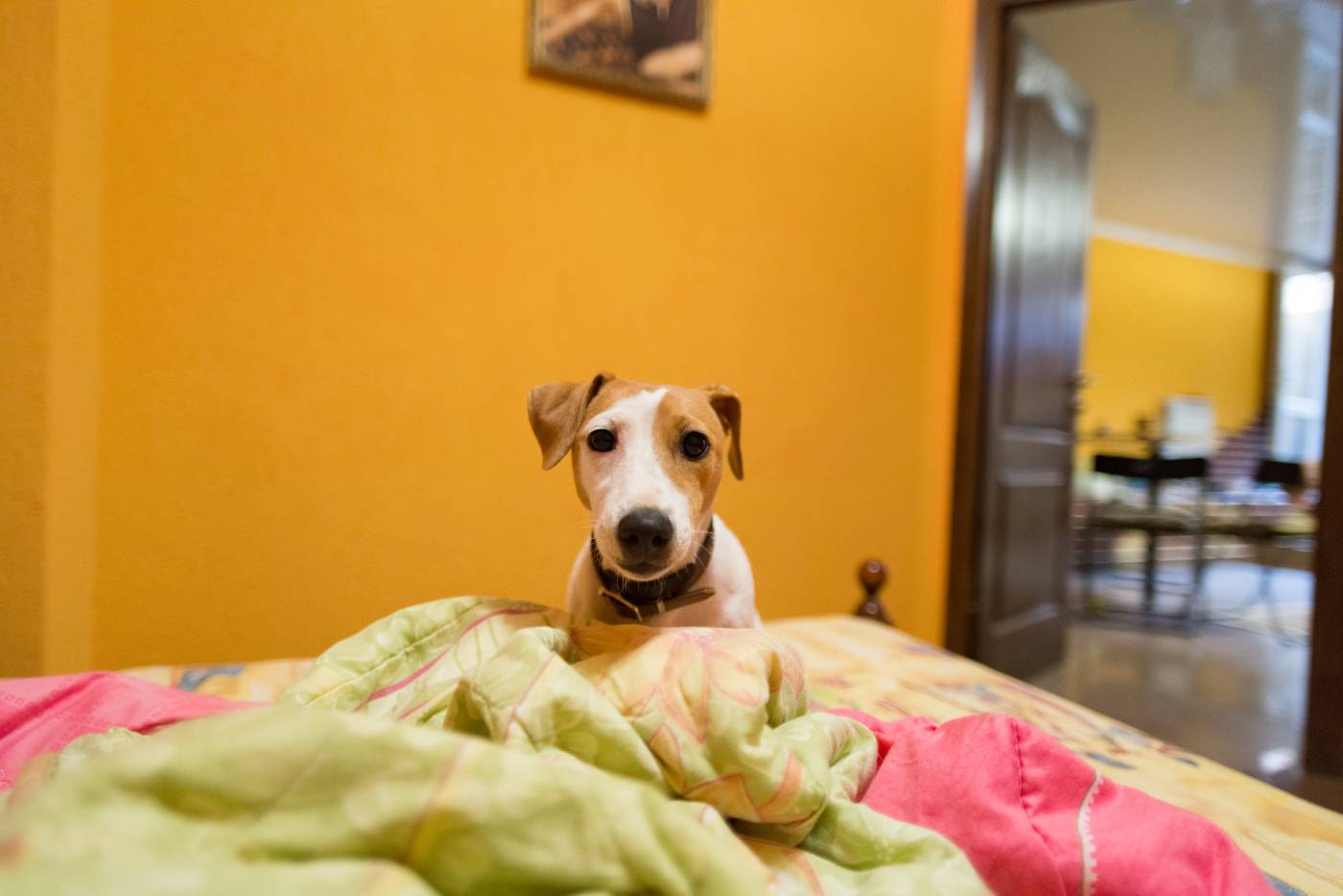
If a puppy pees on a bed
Because of their young age, a puppy may not understand that they should pee only outside, especially because the fabric of a bed or sofa is tactilely similar to pee pads. In this case, carefully wash your bed with an odor remover that neutralizes the smell, don’t scold or punish your puppy for peeing, and continue potty training them. Always praise your puppy for peeing in the right place.
Sometimes your puppy may pee because of overexcitement during playing, but these are minor events and unlikely to be repeated.
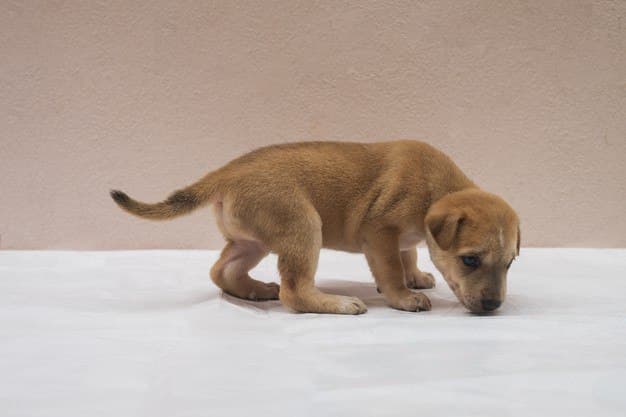
Things you shouldn’t do if your dog pees on your bed
Never punish your dog for peeing on your bed. It may have many negative consequences.
- The problem gets worse because the level of stress increases. A dog gets too stressed out because of being scolded for peeing that they pee again.
- Aggression. A dog may start defending themselves.
- A dog loses trust in you.
- A dog refuses to pee at all.
- A dog starts trying to hide their feces or eat it.
If no method works and your dog continues peeing on your bed, consult a canine behavior specialist.
